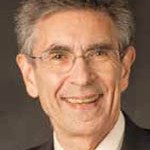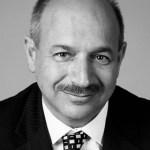Nobel
Here are the highlights from the final day of the meeting:
Carbon monoxide (CO) is not all that bad: Michael Tift, graduate student at Scripps Institute of Oceanography, described how the body naturally produces CO when red blood cells are broken down and CO can actually be protective against inflammation at low doses. His research was focused on measuring whether species that have more hemoglobin (from living in hypoxic environments) also have more CO. As it turns out, people native to high-altitude Peru do have higher CO levels than those living at lower elevations. Likewise,…
Today was the final day of the meeting.
Dr. Joe Thompson (Franklin and Marshall College) spoke about oblique striated muscles, which get their name from the diagonal pattern formed by the location of the Z-lines. This type of muscle is common among cephalopods, nematodes, tunicates, molluscs, etc.
Dr. John Whiteman (University of Wyoming) gave a fascinating talk about polar bears and whether hunting on the shore as compared to the sea ice helped the animals replenish stores after hibernation or fasting as well as how foraging patterns affected activity levels.
Dr. Michael Butcher (…
Yesterday was the final day of the meeting with many late breaking poster presentations as well as this year's Nobel Laureate lecture.
This year's American Physiological Society Nobel Prize in Physiology or Medicine Lecture was given by Dr. Robert J Lefkowitz from Howard Hughes Med. Inst. and Duke Univ. Med. Ctr. He was awarded the Nobel prize in Chemistry in 2012. What makes him famous is a tiny receptor located in the plasma membrane of cells called the G-protein coupled receptor. He is known for discovering the receptor for adrenaline (i.e. the fight or flight…
Additional highlights from the Comparative Physiology posters presented at the 2014 Experimental Biology conference in San Diego, CA:
TA White, G Evans, GC Verzosa, T Pirtskhalava, T Tchkonia, JD Miller, JL Kirkland, and NK LeBrasseur. "Aging and cellular senescence and disease: The influence of diet and exercise"
Not surprisingly, mice consuming a fast food diet for 5 months gain weight, have impaired glucose tolerance, and blood pressure problems. If they are given a running wheel to use voluntarily, the effects on weight and cardiac function can be prevented. In addition, markers of…
Image from Reuters and The NY Times
Congratulations to Drs. Randy W. Schekman, Thomas C. Südhof and James E. Rothman (above left to right) for earning the 2013 Nobel Prize in Physiology or Medicine for their research in "discoveries of machinery regulating vesicle traffic, a major transport system in our cells."
Cells often make products like hormones and neurotransmitters that need to exit the cell in order to simulate or inhibit other cells. The reason these three scientists were selected for the award is that their research discovered how cells regulate the export of vesicles…
The juxtaposition of Nobel Prize season and the revelation of High Octane Crazy in the Republican Party in regards to science is examined by Rachel Maddow:
Visit NBCNews.com for breaking news, world news, and news about the economy
It's that time of year again-- the Swedes will be handing out money to famous scientists, with the announcements of who's getting what starting one week from today. Thus, the traditional Uncertain Principles Nobel Prize Picking Contest:
Leave a comment on this post predicting the winner(s) of one of this year's Nobel Prizes. Anyone who correctly picks both the field and the laureate will win a guest-post spot on this blog.
The usual terms and conditions apply. If you don't have anything you'd like to guest-post about, you can exchange your guest post for a signed copy of How to Teach Physics…

